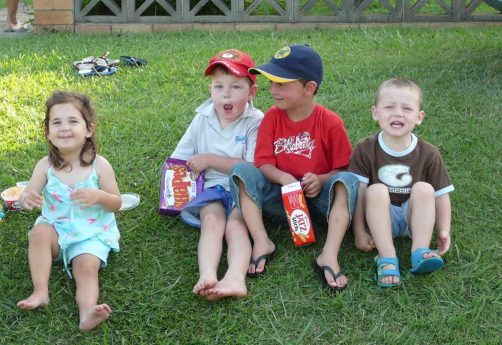
Building trust and goodwill within families
We are social animals, and cooperation is necessary for our survival, but cooperation is entirely based on trust. Dalai Lama (10 minute read)
In previous blogs (here) and (here), I summarised the essential initial steps involved in fostering parent/child relationships, as outlined by Gordon Neufeld and Gabor Mate in their book ‘Hold on to Your Kids: Why Parents Need to Matter More Than Peers.’ The next step in strengthening relationships involves building trust and goodwill through positive interactions. This blog focusses on recommendations for increasing trust, by experts in a variety of fields. Subsequent blogs will showcase their “how-to” practical suggestions for these recommendations and road test these in family settings.
Brené Brown, author of ‘Daring Greatly: How the Courage to Be Vulnerable Transforms the Way We Live, Love, Parent and Lead’; warns that disengagement dangerously erodes the parent-child trust connection. “When we stop requesting invitations into their lives by asking about their day, asking them to tell us about their favourite songs, wondering how their friends are doing, then children feel pain and fear (and not relief, despite how our teenagers may act). Because they can’t articulate how they feel about our disengagement when we stop making an effort with them, they show us by acting out, thinking, ‘This will get their attention’….”. She describes trust as a product of vulnerability that grows over time and requires work, attention, and full engagement.
Relationship expert and author of ‘The Science of Trust: Emotional Attunement for Couples’, Dr John Gottman, concurs that trust is built slowly over time. Dr Gottman asserts that attunement is the basis of trust and offers the following acronym to guide conversations:
Awareness
Turning toward
Tolerance
Understanding
Non-defensive responding
Empathy
In his helpful and moving book, The Seven Habits of Highly Effective Families, Stephen Covey urges parents to strengthen trust with partners and children by investing in something he calls ‘the Emotional Bank Account’. He proposes that we all hold such an account with each member of our family. Therefore, we can consider every interaction (comment, reaction) we have with another family member; as making either a deposit in, or, withdrawal from, this account.
If a relationship is strained in some way, or to boost any relationship, Covey recommends making only deposits (no withdrawals!) for a period of time. The deposits must be undertaken consistently and sincerely to be effective. Covey reminds us that we all seek unconditional love from those closest to us: acceptance rather than rejection, understanding rather than judgement, and participation rather than manipulation. He claims that when you deeply accept and love people as they are, you actually encourage them to become better versions of themselves.
“By accepting people you’re not condoning their weakness or agreeing with their opinion; you’re simply affirming their intrinsic worth. By loving people unconditionally, you unleash their natural power to become their better self. And you can only do this when you separate the person from the behaviour and believe in the unseen potential.” (Stephen Covey)
This practise is particularly valuable when dealing with a child who has gone off track for a while. He contends that rather than labelling this child based on current behaviour, you affirm the unseen potential and love unconditionally instead. Covey assures parents that proactively setting the example and patiently making deposits of unconditional love, brings amazing results over time.
In cases where the relationship has deteriorated, Neufeld and Maté consider the hardest part for most adults, is the shift in focus from behaviour to relationship. Then, a child’s behaviour may range from discouraging to increasingly offensive and alarming.
‘Under such circumstances we find it difficult to stop railing, cajoling, criticising. To change the focus, we must first come to terms with the futility of addressing behaviour and redirect ourselves to the task of forming and/or restoring relationships.’ (Neufeld & Maté)
Thus, there is consensus that one of the biggest mistakes parents make is trying to teach (influence, warn or discipline) before they have the relationship to sustain it. So, we are invited to concentrate our time and efforts on building trust and goodwill within the parent/child relationship. By providing our undivided attention and following our children’s lead without teaching, directing or reinforcing; we convey acceptance, interest and safety to the child. This is particularly important if there has been conflict in the relationship. We can feel confident that as children feel our love and caring, they will begin to value themselves and become more open to our influence and guidance.
These recommendations sound plausible and their benefits constructive and wide ranging. Future blogs will examine the practical suggestions for putting these behaviours into practice 😊
Trust is earned in the smallest of moments. It is earned not through heroic deeds, or even highly visible actions, but through paying attention, listening, and gestures of genuine care and connection. Brené Brown


